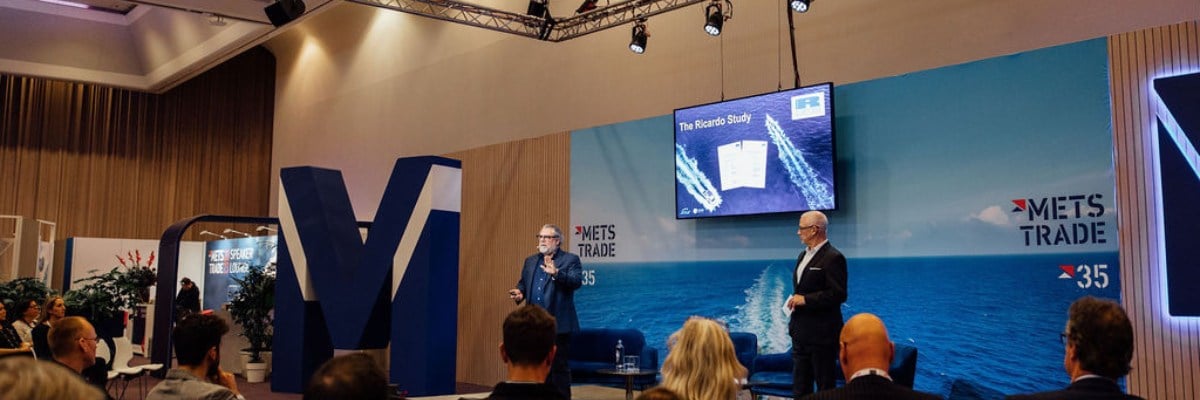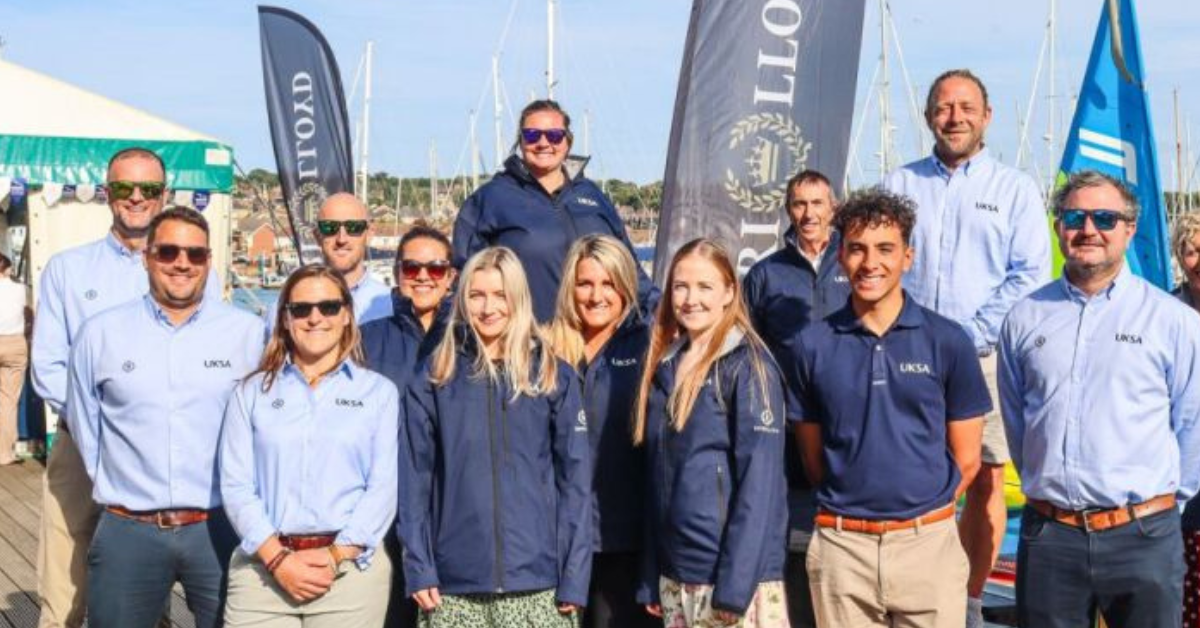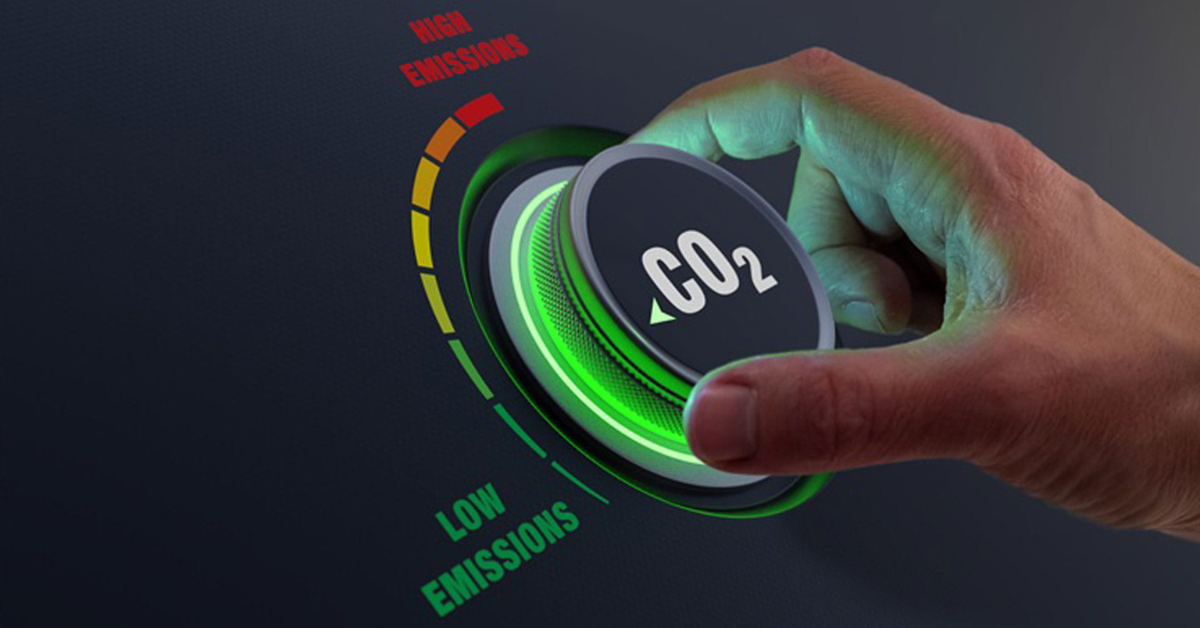Decarbonising propulsion: choosing the right option
 Kim Hollamby
Kim Hollamby
ICOMIA launched its widely anticipated Pathways to Propulsion Decarbonisation for the Recreational Marine Industry research report at METSTRADE 2023. Kim Hollamby outlines how this document will inform the global leisure marine sector’s sustainable design decisions and talks to ICOMIA CEO, Joe Lynch about next steps.
Everyone in the global marine trade has been aware of the need to deliver carbon neutrality in the discernible future but how to do so in an authentic, scientifically proven way has been less clear. There are a variety of technical pathways towards solving the problem but which of them will be viable and will one-size fit all?
The International Council of Marine Industry Associations (ICOMIA) has been working behind the scenes with its members to provide clarity around one significant part of that jigsaw puzzle. Following major investment in research, its Pathways to Decarbonisation for the Recreational Marine Industry report, released at METSTRADE this year, examines how best to provide sustainable propulsive power for boats under 24m in length. The report was commissioned from leading global engineering consulting firm Ricardo, which in turn engaged with three independent bodies to examine the results before they were finalized.
The research interrogated propulsion technologies across nine common recreational seagoing and inland boat types. It modelled the likely lifetime greenhouse gas (GHG) emissions, financial costs, usability, performance, range, and infrastructure implications for each. The propulsion solutions investigated included:
• Battery electric (electric-powered boats and watercraft)
• Hybrid electric (internal combustion engines using liquid fuel and electric)
• Hydrogen (internal combustion engines or fuel cell)
• Internal combustion engines with sustainable marine fuels (sustainably produced liquid substitute for conventional fossil fuel)
• Internal combustion engines with gasoline or diesel
Where possible, Ricardo used baseline data from the marine industry but was also able to enrich that data by projecting likely outcomes from its experiences in other sectors. While focused primarily on propulsion, the report also considers the carbon footprint of transporting the fuel or energy to the boat, as well as the creation of the basic boat, its engines and batteries.
The finished report clearly demonstrates how recreational boats are considerably different in nature compared to most other transportation sectors. Because usage levels and profiles vary widely across different boat types, cruising grounds and ownership profiles, Ricardo’s peer-reviewed research concludes there is no universal one-size-fits-all approach to decarbonizing recreational boats.
Different solutions for different uses
The report’s findings reveal great potential for increased immediate decarbonization of recreational boats through widespread adoption of sustainable marine fuels by 2035. This could amount to as much as 90% GHG reduction – without compromising range or performance. This finding considers an estimated current global boat fleet of 30m with an estimated life of 40–50 years. Recreational boating is reported as accounting for 0.1% of current global GHG emissions.
Although much industry development is understandably focused on electrification, Ricardo’s analysis suggests that pure electric propulsion won’t be the right solution for all types of boating; in those less suitable applications it may not yield GHG reductions over current practice if manufacturing impacts and battery replacements over boat lifecycle are considered. Hydrogen will play a part in the future, provided its production process can be optimized. Hybrid technology provides the most potential for emissions reductions for boats that are used for rentals and other high-use environments.
Summarizing, the report offers scientifically formulated evidence to suggest that the marine industry will need a portfolio of propulsion solutions to pick from in the future, with each application considered carefully on its user case to ensure maximum reduction of environmental impact. For the boat buyer, that might mean cost of ownership uplift on a wide scale between 5%-250% until alternatives achieve market scale.
Industry reception and next steps
Following its launch on the first day of METSTRADE, the ICOMIA team were kept busy running explanatory panels and discussing the findings with visitors to its stand in hall 13. At the end of the show, CEO Joe Lynch confirmed the report had made a big impact: “We took time to explain the report’s findings and show in detail the complex relationship between source of power, source of energy and the use cases of different boats. If you use a boat for 250 hours a year, that demands a different solution to 20 hours under power annually. The information was well received because the findings were based on data, not opinions.
“Next year, we’ll be working with our marine industry association members using events like Boot Düsseldorf and the Miami International Boat Show to conduct a consumer-facing campaign. This will educate the public on decarbonization in the leisure marine sector in much the same way as they have been learning about the adoption of alternative technologies in the automotive sector.
“The report also has an important role to play with legislators and it is already being studied by governments in the EU, US, UK, Sweden and Australia. Lawmakers are hungry for objective information that avoids a fight and enables our industry and governments to work together and make informed decisions. All the assets and content we've created have been supplied to our marine industry association members for their use.
“We’ve provided the marine leisure sector with information that cannot be accused of greenwashing or bias. The report outlines different pathways, and we need to work with our industry colleagues to choose which of them to focus on next. We know that not all technologies and boat types are included. Advances in hull design and foils are two examples where reduction in carbon footprint will be possible. That’s why we started using the term pathways because propulsion is the first path that we've explored – there are many more that we need to work with our industry colleagues to develop.”
Further information
ICOMIA has created a dedicated website for the Pathways to Propulsion Decarbonization for the Recreational Marine Industry report. You will find a downloadable executive summary. Members of marine industry associations that belong to ICOMIA should be able to access the full report through their national association.
Share your stories on leisure marine industry with us
Do you have an innovation, research results or an other interesting topic you would like to share with the leisure marine equipment industry? The METSTRADE website and social media channels are a great platform to showcase your stories! Let us know via metstrade@rai.nl
Are you a METSTRADE exhibitor?
Make sure you add your latest press releases to your Company Profile in the Exhibitor Portal for free exposure.


